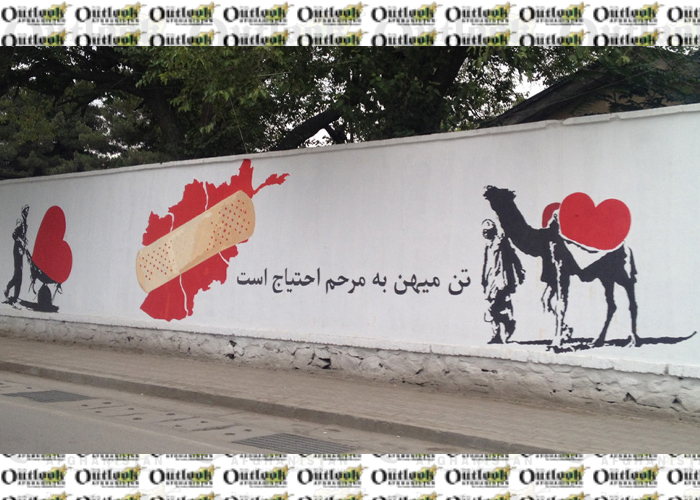Unhappily, this is more than 40 years that Afghanistan has changed to slaughterhouse of human being leaving millions of victims and causalities. The insurgent groups crazily launch terrorist attacks on security forces, intellectuals, media workers, educational centers, universities and human right activists. These attacks are clear example of genocide and violations of humanitarian law while they follow no legitimate goal other than reaching power through violence. According to international law, the military personnel are those who are directly involved in war. Even, the police are considered civilians as their main task is to enforce law maintaining public order. Likewise, all civil servants, including judges and prosecutors are considered civilian and so must not be targeted during the war. In addition to government public servers, the insurgent groups attack on free media workers, intellectuals, religious scholars and journalists believing that the government employees including police, judges and prosecutors infidels or mercenaries of infidels and so authorized to kill them; in this way, they systematically and purposefully kill a wide range of civil servants, which can be considered war crimes and crimes against humanity. The insurgent groups do not take necessary precautions to prevent the killing of civilians as taking trenches in civilians’ areas. They also use civilians as human shields while the governing laws of war require the warring parties to take the necessary precautions to prevent civilian killings.
One of the major discourses which pave the way for lasting peace and compromise in post-war countries is transitional justice. The transitional justice experience in post-communist countries such as Poland, Hungary, Romania, Bulgaria, Albania, Slovenia, Czech Republic, East Germany, Rwanda, Northern Ireland, Cambodia, Vietnam and many other Latin American countries have provided wide range of information to researchers. The researchers have introduced two approaches for explaining transitional justices: top-down approach and bottom-up approach. This article is going to discuss about the top-down approach which is the first and most important theoretical approach for transitional justice to the date. Whatever is said about the practical aspects of transitional justice are the operational and practical levels of the same approach in different societies. This approach has had considerable achievements in proportion to the diversity of societies, but since it was first proposed by political circles, not scholars and academicians, it has been widely criticized.
The top-down approach is the government-centered approach. This means that this is the primary responsibility of the governments to enforce transitional justice in post-war societies. Therefore, all principles and components of the transitional justice programs such as accountability, justice and compromise are feasible based on the role of the government in promoting transitional justice. The mechanisms for achieving these goals include prosecuting human rights violators, addressing victims, finding the truth, institutional reform in the judiciary system, and preventing the employment of human rights violators in government and private offices. If we examine these goals and mechanisms carefully, it becomes clear that none of them can be achieved without the existence of a powerful government. The International institutions can only play a complementary and cooperative role.
Accountability is one of the most important components of transitional justice. Although this concept can be related to the individual putting people in a position of accountability, it is more related to organizational and institutional structures. Among institutions and organizations, the government is the largest of them and so the accountability does not belong to the groups outside of the government. Accountability means that the government is the main social and political institution in society accountable to the citizens and official institutions. The government is also accountable to the international institutions and authorities in accordance with international law. According to the UN Charter, the state has an objective and real responsibility for four sets of global standards including international human rights law, International humanitarian law, international criminal law and International refugee law.
The transitional justice has also an institutional attribute rather than individual attribute. In the modern world, it is not the question if a person behaves fairly, but the main issue is that institutions have a fair structure being designed in such a way that removes the ground for abuse. Therefore, the purpose of administering justice does not mean that it is administered and enforced by the individual; rather, it means creating structures and institutions that both carry justice as a human value and also play an essential role in the realization of justice in society. In general, we need to create and establish a system on the basis of justice; it may not be completely successful in administering justice. We also need to reform the political system when it organizes inequality or discrimination through legal framework.
As a last point, the main goal of transitional justice is establishment of lasting peace with following several important goals such as recognition of victim’s rights, compensation and prevention from recurrence in the future. The complementary goals can include building accountable and non-discriminatory system. Therefore, establishing a permanent peace with the Taliban is not possible without considering the implementation of the transitional justice program. This is more than twenty-five years they have been committing massacres, genocides, the most severe terrorist attacks on civilians and non-civilians. Implementation of transitional justice on Taliban and Taliban leaders will have many positive implications such lack of culture of impunity, paving the way for confession of crime perpetrators, and prevention from recurrence in the future and finally establishment of lasting peace and reconciliation. In addition, it will make the families of victims of war and violence feel involved and owned in the process.
Home » Opinion » Transitional justice and lasting peace in Afghanistan
Transitional justice and lasting peace in Afghanistan
| Mohammad Zahir Akbari

